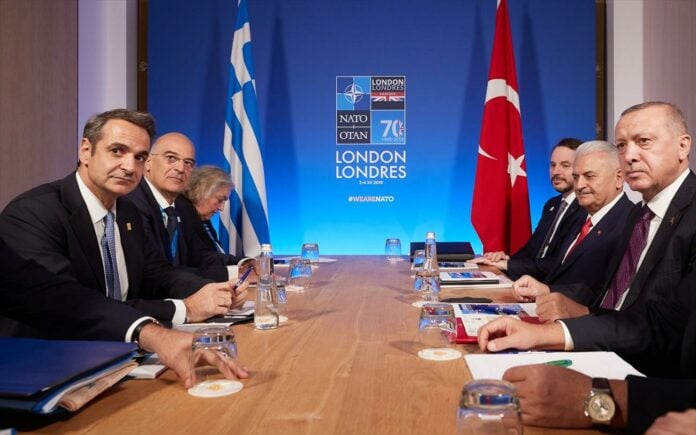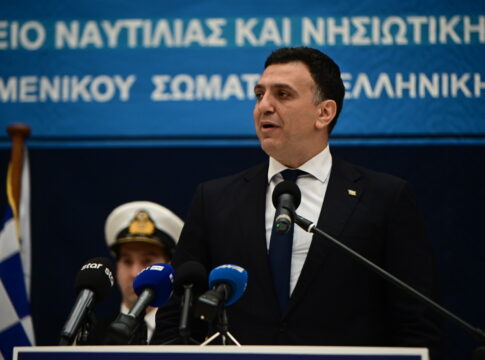Greek leadership on Friday continued to assail an abrupt and contenious agreement between neighboring Turkey and the shaky interim Libyan government (GNA), with Prime Minister Kyriakos Mitsotakis telling deputies in the Parliament in Athens that the document was null and “worthless” – two days after more-or-less telling Turkish President Recep Tayyip Erdogan the same thing in London.
Mitsotakis said his government was preparing the next steps towards negating any possible implementation of the memorandum of understanding, which is essentially the most egregious instance of “Turkography” in recent memory. Erdogan-led Turkey and the interim government that mostly controls Tripoli demarcated exclusive economic maritime zones that “erase” the Dodecanese islands, Crete and Cyprus off the map of the eastern Mediterranean.
“There were two critical fronts that dominated discussions I had with Mr. Erdogan. The first was Turkey’s aggressive stance, which after its illegal actions in the Republic of Cyprus’ exclusive economic now extending to elsewhere. Its thrust is an null document, which Ankara has called an ‘agreement’ with Libya, despite the fact that this is already strongly disputed even within Libya. The second front is migration, where the neighboring country has not – especially in the recent period, as I told Mr. Erdogan – complied with obligations that emanate from the agreement with the EU. On these two issues, Greece has both a policy and a plan,” he said.
Mitsotakis skewered the Turkey-GNA MoU as generating no legal effect, is unrecognized, geographically and historically ignorant, and, as it appears, left without even ratification by Libya’s house of representatives.
In a related development, Turkish Foreign Minister Mevlut Cavusoglu on Friday took exception with the expulsion of the Libyan ambassador from Athens.
The diplomat had received a deadline of until Thursday to present a copy of the MoU signed between Ankara and Tripoli or face expulsion.
While in Rome, the Turkish FM referred to “immature behavior” in the diplomatic field and to “outrageousness”, adding that the decision “shows the real face of Athens.”














